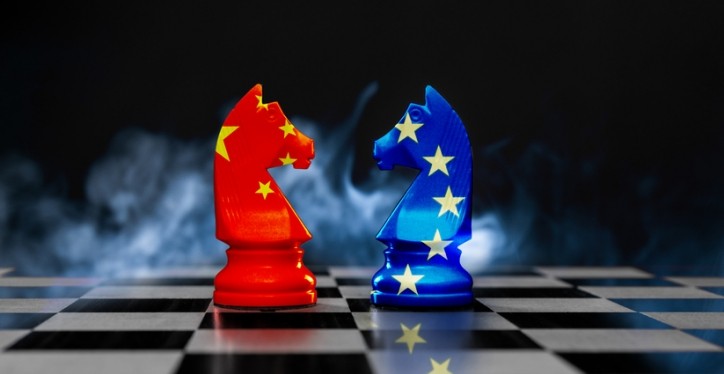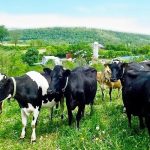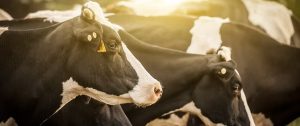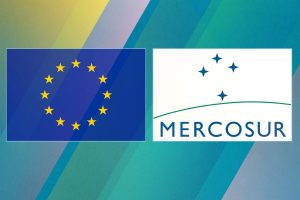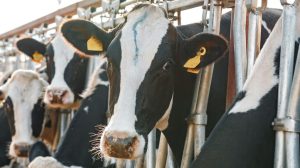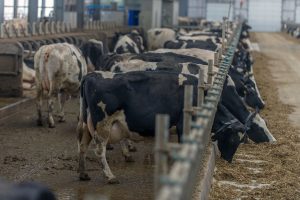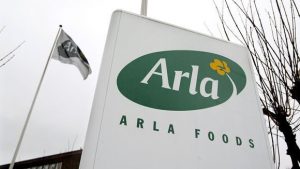
The Chinese Ministry of Commerce has initiated a high-stakes anti-subsidy investigation targeting specific dairy imports from the EU, escalating trade tensions between the world’s second-largest economy and Europe.
The probe, which could significantly impact the global dairy industry, follows a formal complaint by the Dairy Association of China and the China Dairy Industry Association. These domestic groups allege that EU subsidies create unfair competition by enabling lower-priced EU dairy products to flood the Chinese market.
The investigation will examine 20 EU subsidy programs, many tied to the Common Agricultural Policy (CAP). These include subsidies ranging from basic income support to specialized incentives for young farmers, along with national schemes in countries such as Ireland, Austria, and Italy. Chinese producers argue these subsidies have artificially lowered the production costs of EU dairy goods, disadvantaging local competitors.
Chinese officials noted that their decision to proceed with the probe followed consultations with the EU government on August 14.
The probe covers a broad spectrum of dairy products, including cheese, curd, milk, and cream, and could result in significant tariffs or restrictions on EU dairy imports, further straining trade relations.
This investigation comes on the heels of China’s anti-dumping inquiry into EU pork imports, announced in June. Both actions are widely perceived as retaliatory measures following the EU’s probe into Chinese electric vehicles.
EU response
Olof Gill, spokesperson for trade and agriculture at the EU Commission, expressed confidence that the subsidy schemes targeted by Chinese officials—whether under the EU’s CAP or national and regional programs—fully comply with international rules and do not harm the Chinese dairy industry.
“The Commission will now analyse the available information and will follow the proceeding very closely, in coordination with EU industry and member states.”
He pointed out that this is the third such action by China in recent months, following the probes into EU pork and brand imports. “We will closely examine these actions by the Chinese government to assess any potential misuse of Trade Defence Instruments and take appropriate steps to protect our interests.”
Gill added that the Commission remains committed to defending the EU dairy industry and the CAP, taking all necessary measures to ensure the investigation adheres to relevant World Trade Organization (WTO) rules.
Alexander Anton, secretary general of the European Dairy Association (EDA), said the group was confident in the WTO compliance of the overall CAP toolbox for supporting EU agriculture.
“Nevertheless, we will collaborate closely with the relevant EU Commission services, Chinese authorities, and our Chinese dairy partners to clarify the dairy component within the consultation process, addressing this aspect of the complex trade relationship between China and the EU.
“We trust that the EU and China will find a constructive resolution, as they have done in past disputes.”
Dutch dairy cooperative, FrieslandCampina, also reacted, saying: “We will provide the necessary information related to the investigation, if requested, in accordance with laws and regulations.”
Irish dairy exports to China amounted to €426m (US$487m) in 2023 which makes up 66% of total Irish agricultural exports to China, according to the Irish Department of Agriculture, Food and the Marine (DAFM). “Of this, approximately €46m of exports could be impacted by the investigation,” added DAFM.
The Irish officials are engaging with the Commission to ensure that it has all of the data necessary, in so far as Ireland is concerned, to resolve any issues raised in the investigation.
Conor Mulvihill, director of Dairy Industry Ireland, stressed that the Irish dairy industry produces and exports in full compliance with EU and WTO rules.
“While any threat of trade disruption is unwelcome, and China is an important market for both EU and Irish dairy, Irish dairy is well diversified in its product mix and destination countries. At present, the Chinese complaint relates to a subsector of dairy products, such as cheeses, and most of our cheese exports are directed to the UK and EU markets,” he added.
Scope and timeline of the investigation
The Chinese commerce ministry’s investigation aims to determine whether EU dairy subsidies constitute unfair trade practices and whether countervailing measures are necessary.
The initial timeline sets the probe’s completion date for August 21, 2025, with a possible six-month extension.
The inquiry will focus on imports from April 1, 2023, to March 31, 2024, and will assess potential industry injury dating back to January 2020.
Interested stakeholders, including EU governments and businesses, have 20 days to register and participate in the investigation. The Chinese ministry will collect data through questionnaires, hearings, and site inspections, seeking input from all relevant parties.
Chinese lysine imports
Meanwhile, in ongoing scrutiny of Chinese exports, an EU probe is targeted at exports of lysine specifically used in animal feed.
In response to a complaint from a France-based lysine producer, the EU Commission has initiated an anti-dumping investigation into Chinese lysine imports. The Commission’s official notification confirmed that there is sufficient evidence to warrant the probe.
The investigation will cover the period from January to December 2023, with an analysis of injury trends extending back to January 2020.
The inquiry targets lysine, including its esters, salts, and feed additives, with a dry weight of 68% or more L-lysine sulfate and up to 32% of other components such as carbohydrates and amino acids.
You can now read the most important #news on #eDairyNews #Whatsapp channels!!!
🇺🇸 eDairy News INGLÊS: https://whatsapp.com/channel/0029VaKsjzGDTkJyIN6hcP1K
